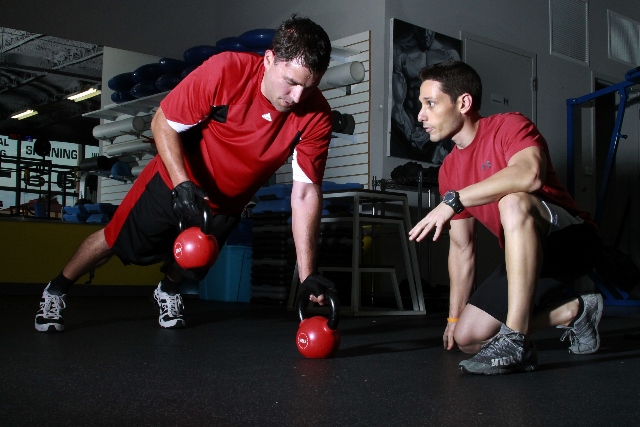When I first started in this industry my business competence was pretty low. If you asked me what the term “overhead” was or what it meant to itemize business expenses I would have been like “say what again?”
I’m still not someone I’d consider to have a lot of business pedigree, but I think I’ve done pretty well for myself.
My friend Shane McLean went around and asked a bunch of coaches – including myself – some standard fitness business and gym ownership questions that I hope will resonate with people.
Enjoy.
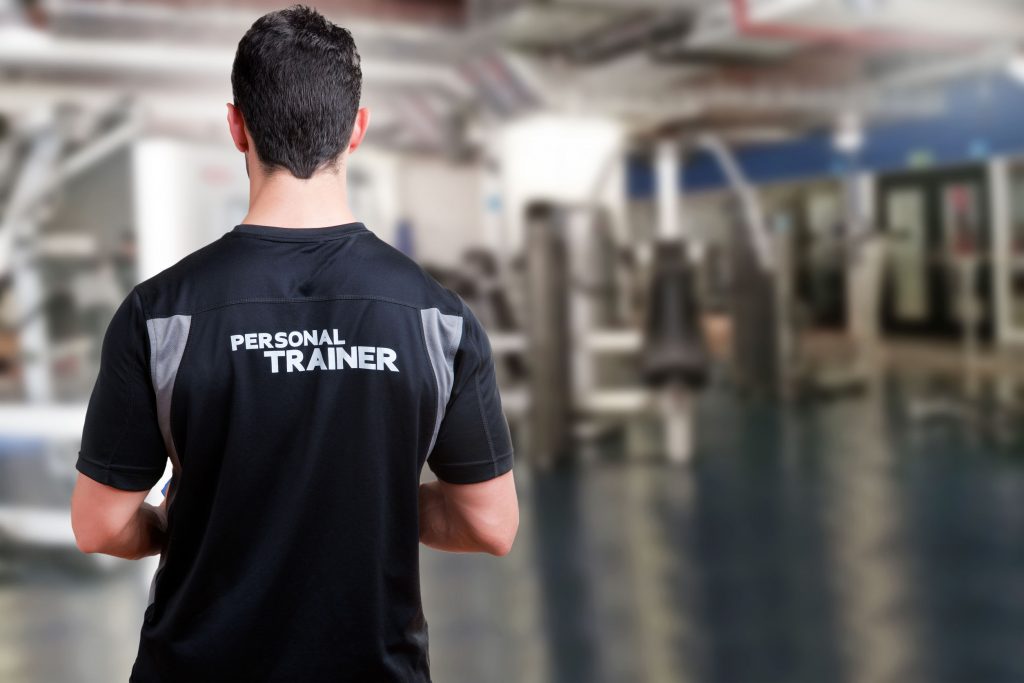
Business Advice For Trainer From Trainers
Personal trainers get into the fitness industry because they’ve got a huge passion for exercise and for changing people’s lives. However, some have no idea about the business side of coaching, particularly those who are new to the industry.
Newbie (and experienced trainers) work crazy hours to please clients which makes having any sort of social life outside of work very difficult. Trainers then start to realize there’s more to this coaching gig than meets the eye because:
- You’re trading a lot time for little money.
- It’s real hard yakka.1
Furthermore, exercise is big business nowadays. According to the website Statista, the US spent 25.8 billion dollars in 2015 on all things health and fitness. (1) That’s a fair chunk of change that has some trainers saying…….

The same hard work that goes into becoming proficient at coaching needs to be applied to the business side also.
But how do you get started?
Don’t worry this Aussie has your back.
I asked some prominent people in this industry – David Crump, Eric Bach, Johnny Tea, Chris Diamantakos, and some cat-obsessed nerd named Tony Gentilcore – a couple of hard hitting questions that will provide you with actionable takeaways on the business side of coaching.
Read on and learn things.
David Crump – Entrepreneur and Coach at DaveCrump.com
1. At what point in your career did you realize that you needed to know more about the business side of coaching and how did you go about it?
Fortunately, I started my training career in a big box gym and moved into management relatively quickly. This gave me the opportunity to learn more about sales and the business side of fitness early on.
I did, however, realize that this gave me a leg up on many of my contemporaries as soon as I wanted to branch out on my own.
Despite my early advantage, I was still aware that if I wanted to stay ahead, that I would have to continue learning more and I found the most benefit from reading content from some of the big names in the industry as well as reading a lot of books from thought leaders in other industries.
2. What were your go to people/resources that helped you expand your business knowledge?
I can’t overemphasize the importance of having great mentors in this area. Some of the people that I have learned from directly or indirectly include Mark Fisher, Alwyn Cosgrove, Jon Goodman, Thomas Plummer and others.
It should also be mentioned that the experience of making mistakes and learning from them is paramount. Getting to make mistakes on someone else’s dime (at a big box gym) was a very valuable experience.
3. What advice would you give a coach looking to open a gym?
I would tell them to get VERY clear on what they want long-term. Many coaches and trainers think that opening a facility is the most logical next step, but that is not accurate.
Being a great gym owner means being a coach takes a back seat and increasing your level of responsibility exponentially. You have to be prepared to make your gym your number 1 priority for at least the next 5 years.
I think there are a ton of coaches that would be much happier simply renting space someone and having full freedom and control of their schedule and life.
If, on the other hand, someone knows that it is what they really want then I would tell them to start small. That means your first place shouldn’t be your 6000-square foot dream facility with every piece of equipment under the sun.

Instead, starting a modest gym and building it organically will put you in a better financial position to work the kinks out over the first couple years and eventually grow into a larger facility without being up to your eyeballs in debt.
4. The best book you’ve read about business and why?
I can’t narrow it down to 1, but I think there are 3-4 that really helped define my beliefs about business:
- How To Win Friends And Influence People – Businesses are built on dealing with people and this book really delivers great tips on how to have better interactions and make people enjoy working with you.
- The E-Myth Revisited – The classic business book that helps newbies learn how to move from being a “technician” to a “manager” of business owner through the use of systems in simple terms.
- Start With Why – The most successful businesses in the world understand what they stand for and why they exist. This book helps a business owner really crystalize what makes their business unique and how to help customers understand its purpose.
- Delivering Happiness – Written by the founder of Zappos, this is the best book on business culture, values, and customer service I have ever read.
Eric Bach, CSCS, PN1 and owner of Bach Performance.
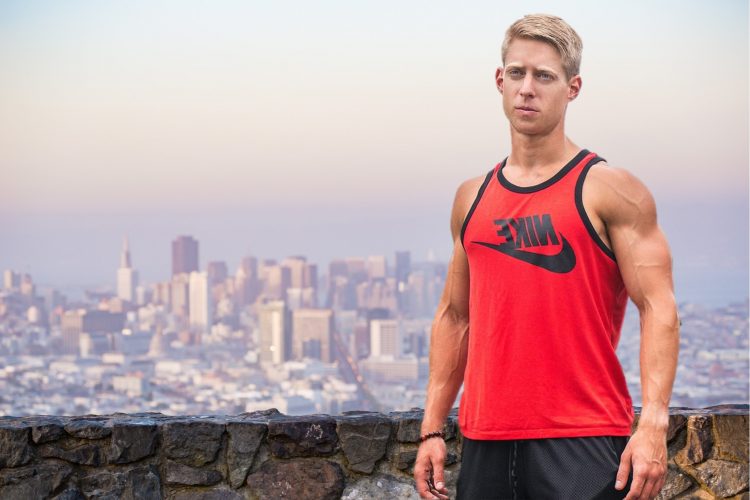
1. At what point in your career did you realize that you needed to know more about the business side of coaching and how did you go about it?
My first training job at a big box gym gave me a first class look at the limitations of the personal training industry. Frequent policy changes, ownership transitions, and inconsistent sales goals led to a ton of stress on my business early on.
After I built a full book of business and deep relationships with clients’ ownership cut trainer-take-home pay by 30% to follow a “group training system”. At this point I was left with the decision: let my business be gutted and play the game or rewrite the rules on my own terms.
I decided to rewrite the rules, seek out mentors who had built a business I wanted to replicate and invest heavily in myself by paying for their services.
2. What were your go to people/resources that helped you expand your business knowledge?
Early on I followed the typical path: reading sporadic articles on the internet. I read everything I could on training from coaches like Dave Tate, Jason Ferruggia, John Berardi, Tony Gentilcore, John Romaniello, Jon Goodman, Nate Green, Christian Thibaudeau, and Eric Cressey.
When it came to business I dug into work by Ryan Holiday, Dale Carnegie, Chip and Dan Heath, Seth Godin, and Tim Ferriss.
Not long thereafter Jon Goodman introduced his Viralnomics coaching group to personal trainers looking to build their online business.
He was my first business mentor and pushed me to get out of my comfort zone and start treating my business like, well…a business and not a hobby.

3. What advice would you give a coach looking to open a gym?
Think long and hard whether you’re ready to run a business. Today everyone wants to be an entrepreneur and a business owner, yet no-one ever tells you not everyone is meant to run a business.
There will be long days, short nights, lots of coffee, and a constant battle to improve. While some folks are built for this challenge others simply aren’t.
Make sure you’re truly willing to make the sacrifices needed to create something great from the ground up before exploring leases, equipment deals, and opening a brick and mortar facility.
4. The best book you’ve read about business and why?
The One Thing by Gary Keller – In an age where information travels faster than ever and there’s an endless supply of “tips, tricks, and hacks” it’s far too easy to get bogged down in the minutes.
Trainers looking to build their online business fall into the same trap many of our personal training clients do: getting stuck in a cycle of information overload and inaction.
The One Thing reinforces getting clear on your number one priority for the day, week, month, and year and makes taking action on accomplishing this task the most important focus.
Johnny Tea Strength Coach, Manual Therapist
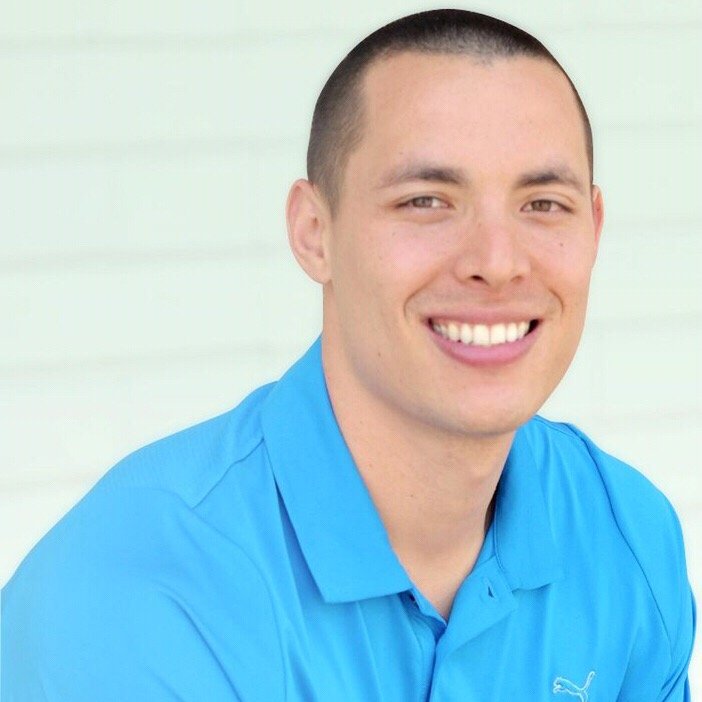
1. At what point in your career did you realize that you needed to know more about the business side of coaching and how did you go about it?
As soon as I decided to go out on my own and become self-employed in 2008, I realized I needed to learn a ton more about the business side. As new trainers, we tend to start off by thinking to ourselves, “Oh, I don’t care about the money part. I just want to train people and the money will eventually come.”
As we all know, there’s a lot more to it than just winging it and seeing where it goes in business. I’ve always loved the quote “Plan your work and work your plan”. Write down your goals (both short term and long term), and continue chipping away.
I reached out to other fellow colleagues/friends, read books, attended workshops, and picked the brains of some of my clients with a business background, and even brainstormed ideas with a trusted friend (in this case my wife).
With all this information I gathered, I applied the ideas that made sense for my business and made adjustments if needed.
2. What were your go to people/resources that helped you expand your business knowledge?
I specifically reached out to people that I respected in our industry who had a ton of success. Eric Cressey, Pete Dupuis, Chad Landers, Mark Fisher, Tony Gentilcore, John Rusin, Dean Somerset, Eric Bach, Jordan Syatt, John Goodman, John Romaniello, and David Dellanave are just a few names that come to mind, but this list is honestly endless.
Important side note: make sure you go about reaching out to people the right way. Meet with them at workshops/seminars or offer to pay them for their input and time.
Genuinely try to develop a relationship with the person before seeking advice.
No one likes creepy needy people seeking free advice.
3. What advice would you give a coach looking to open a gym?
I would say first ask yourself: why do you want to open a gym? I don’t mean that in a negative way but it’s a valid question. Here are some important questions to consider:
- Do you want to open a gym because you just want a big fancy building with your name on it?
- Do you have enough clients to support a gym and what’s your strategy to attract new clients?
- Have you considered the amount of money it would cost to get started? (Oh, and don’t forget about the hidden fees too).
- Do you have the capital to cover you for at least 6 months, just in case your business doesn’t start booming like you expected?
A lot of people want to go big and open a gigantic facility like Cressey Sports Performance (awesome facility and people by the way), but are probably better off starting small.
I would recommend possibly considering training facilities/studios that allow you to rent out space. This will give you time to build up your clientele while keeping your overhead cost low.
4. The best book you’ve read about business and why?
This is a tough one because there’s so many good books. I really enjoyed “Ignite the Fire” and “Viralnomics” by Jon Goodman because they were written specifically for people in the fitness industry, and gave actionable steps on how to become successful.
Chris Diamantakos NSCA-CPT
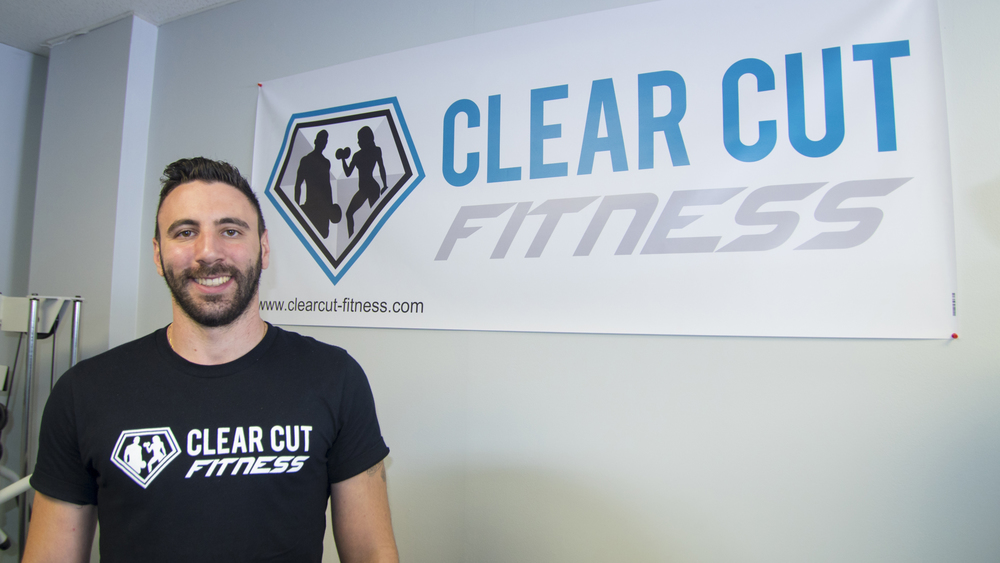
1. At what point in your career did you realize that you needed to know more about the business side of coaching and how did you go about it?
When I decided to leave the gym, I was looking to start my own PT business. I realized I knew nothing about business and marketing. I had a small-time frame of six weeks to learn as much as I could and actually apply it.
I picked the brains of a few gym owners and successful freelance trainers I knew and had been directed to a couple fitness business coaches who could help.
2. What were your go to people/resources that helped you expand your business knowledge?
I ended up following Jonathan Goodman and theptdc.com. If you’re wondering why, it’s because Jon personally took the time to answer my questions and he seemed to truly care about improving the fitness industry by helping trainers and gym owners with business.
3. What advice would you give a coach looking to open a gym?
Spend a shit load of time figuring out the niche you want to service and become a true expert in that field.
Realize how you can help these people the most, and continue to work hard at being great. One quote that’s stuck with me from Jon since day 1 is:
“1. Do a really good job 2. Make sure everyone knows about it.“
4. The best book you’ve read about business and why?
There are obviously tons of great business resources out there but the one that’s helped me the most directly is “Ignite the Fire.” It’s specific to personal trainers and up to date in terms of marketing techniques.
Tony Gentilcore, You’re Reading His Site Right Now*
* You’re really smart
1. At what point in your career did you realize that you needed to know more about the business side of coaching and how did you go about it?
Not soon enough to be honest.
There’s still a huge part of me that feels I’m behind the curve when it comes to business acuity and savvy.
Then I think to myself, “Huh, I’m making a profit, I’m still getting a nice stream of new clients, and my landlord hasn’t given me an eviction notice yet…I’ve got to be doing something right!?”
To answer the question, though, it wasn’t soon after meeting (and then living with) Eric Cressey that I soon learned the err of my ways. It’s hard to be around a guy like that and not absorb his work ethic and be a little more in-tune with going the extra mile to get better.
If I had to be exact, I’d say the week Eric, myself, and Pete Dupuis decided to put our balls out there and open up Cressey Sports Performance – July 2007 – was when I finally diving head first into more business-related content.2
Alwyn Cosgrove was a major influence on us when we opened up CSP, and from there all I did was following the scent of other successful trainers/coaches – Mike Boyle, Joe Dowdell, Dan John, John Berardi, to name a few – and try to emulate what they read or did.
2. What were your go to people/resources that helped you expand your business knowledge?
Giving credit where it’s due, I feel I was able to live in this unique “learning business bubble” by being in the proximity of Eric and Pete for eight years (I left Cressey Sports Performance in the Fall of 2015).
When I decided to leave I was so scared and nervous.
I thought for sure I’d fail.
Low and behold I was quite surprised to realize I didn’t suck at business as much as I thought I would.
In fact, I took solace in something I used to hear Pete always say:
“99% of operating a profitable and efficient fitness facility is application of common sense.“
That sentence alone helped mute a lot of my self-doubt and negative self-talk about business.
I mean, in a sense, business can be dwindled down to one simple act:
Don’t spend more than you collect.
Does your facility really need that expensive leg press machine or life-size early 90’s Mariah Carey statue?
3. What advice would you give a coach looking to open a gym?
The holy grail in this industry is NOT owning a gym.
There’s a connotation that you’re only successful in this industry if you own a gym.
That’s bullshit. And if anyone wants to read more of my thoughts on that I’d encourage them to check THIS out.
I could sit here and wax poetic on all the reasons why someone would and would not want to open their own gym.
I’ll just say this: I think every trainer should work in a commercial setting for 2-5 years before the words “gym ownership” are uttered. It’s times used to learn the craft, to get really good, and to understand how to develop relationships with people from all walks of life.
4. The best book you’ve read about business and why?
Profit First by Mike Michalowicz, hands down.
No one book has helped shape my approach to running my business than this book.

About the Author
Shane “The Balance Guy” McLean, is an A.C.E Certified Personal Trainer working deep in the heart of Texas. Shane believes in balancing exercise with life while putting the fun back into both.

